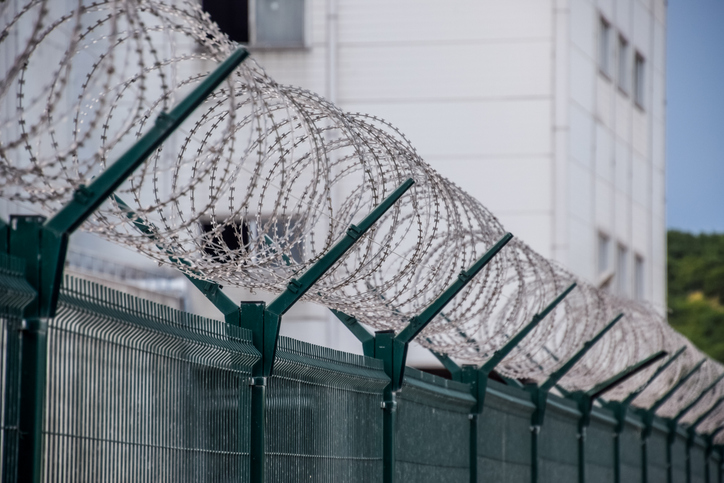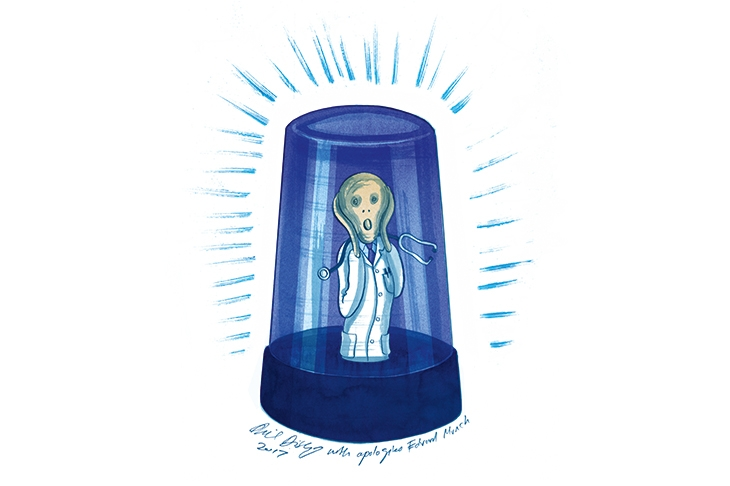As I read last week’s Steerpike exclusive on the thorny topic of ‘inappropriate relationships’ between prison officers and prisoners, my mind turned to Wandsworth in 2020, and a particular young woman officer whose behaviour was often far from appropriate. She would start conversations of a sexual nature with prisoners, asking what kind of pornography they enjoyed, and whether she was our type. She’d often touch our arms or chests, or brush against us when passing on the narrow landings. I’m not aware that she ever went further than that, but I always felt her interest in criminals went far beyond the professional.
None of us ever made a complaint. In many ways she was one of the better officers. She treated us fairly, was reasonable and consistent in her application of the rules and seemed to have our interests at heart. And yet still when she brushed against me or placed a hand on my upper arm, I felt an intense crawling wrongness.
Power dynamics in these situations can be complex
People may scoff at this. She was a slight woman. I stood a foot taller than her. How could I feel uncomfortable or threatened? But she was a prison officer and I a prisoner. Although the officer never threatened me, she held power over me and could make my life much worse if she wanted. And so I stayed silent. Perhaps part of what made it so difficult for me was how unfamiliar the sensation of a woman having more physical power than I did was. This dynamic rarely exists outside of prisons and secure environments.
My experience at Wandsworth isn’t unique. Although only a handful of officers are disciplined every year; almost every former prisoner I know has stories of similar behaviour. I spoke with a man who served time at a Category C prison in Southern England. He described ‘several incidents…where an officer was having sexual relations with a prisoner [who] provided her with protection on the wing’, while ‘female officers would talk to or observe prisoners in the showers, making comments about their bodies’, all of which created a ‘sexually charged environment’.
Power dynamics in these situations can be complex. Many frontline prison officers are very young and often new to the job, while many prisoners may be experienced, sophisticated groomers and manipulators. As Sobanan Narenthiran, a former prisoner, told me, ‘prison officers… disconnected from the outside world, must deal with the most traumatic circumstances: suicide, self-harm, violence, emotional abuse and intimidation. I observed many incidents that would’ve led up to or were the consequence of intimate relations between officers and prisoners – whether that was sharing personal details (e.g social media) or more inappropriate physical contact.’
Deborah Murphy, an occupational therapist who worked in prisons and secure environments for fifteen years often observed inappropriate relationships between prisoners and staff. She thinks the shared trauma of the prison environment can be to blame. ‘A bond forms over such shared traumas…it is not difficult to see how in environments where you shut off from the outside world in a place…that few people will ever understand that…you can end up feeling you have more in common with the prisoners than many people in the outside world.’
As is often the case across our prison system, understaffing is partly to blame. Wings are often staffed with only a handful of officers for hundreds of prisoners and they are often inexperienced. Half of frontline prison officers have been in the role for four years or fewer, and over 34 per cent have been in the service for no more than one year. In these circumstances, young, inexperienced staff may be more vulnerable to manipulation.
Recruitment and training play a role too. Potential prison officers are required to undergo ‘security vetting as part of their application process’ including reviewing the applicant’s social media. However, that vetting sometimes seems to miss important, easily available information. Linda De Sousa Abreu, who recently pled guilty to having sex with an inmate at HMP Wandsworth, had a live OnlyFans account and had appeared on a Channel 4 programme about swingers, Open House.
Of course, almost all officers do not pursue inappropriate relationships with inmates. The Ministry of Justice promises it is ‘bolstering our counter-corruption unit and strengthening our vetting processes’. I hope these changes work because those who do form inappropriate relationships with prisoners can cause significant harm to themselves, to inmates and to trust in the system. Whether coercing prisoners into sexual activity, or themselves being groomed and coerced, inappropriate relationships like these make our prison system even more corrupt and lawless.







Comments